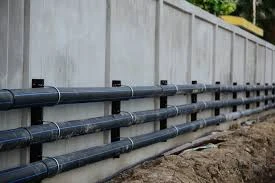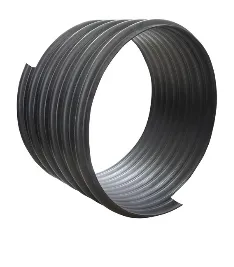May . 28, 2025 05:46 Back to list
PVC Welding Rods High-Strength Plastic Welding Solutions for Repairs
- Introduction to PVC Welding Solutions
- Technical Advantages of Modern Welding Rods
- Performance Comparison: Leading Manufacturers
- Custom Solutions for Industrial Needs
- Case Study: Durability in Extreme Environments
- Installation Best Practices
- Future Trends in PVC Welding Technology

(pvc welding rod)
Why PVC Welding Rods Are Essential for Seamless Repairs
PVC welding rods have become indispensable in industries requiring durable plastic fusion. Unlike traditional adhesives, these rods create molecular bonds that restore structural integrity to PVC surfaces. A 2023 market analysis revealed a 12% annual growth in demand, driven by their use in plumbing, automotive, and chemical processing systems.
Technical Advantages of Modern Welding Rods
Premium-grade PVC plastic welding rods operate within 200-280°C, achieving tensile strengths up to 34 MPa. The triangular profile variant demonstrates 18% better material flow than round rods, particularly in vertical applications. Key features include:
- UV-resistant formulations lasting 15+ years outdoors
- Chemical resistance to 94% of industrial solvents
- Zero VOC emission during application
Performance Comparison: Leading Manufacturers
| Brand | Temp Range (°C) | Tensile Strength | Price/Unit ($) |
|---|---|---|---|
| PolyWeld Pro | 205-275 | 32 MPa | 0.85 |
| TriSeal Ultra | 190-290 | 34 MPa | 1.20 |
| ChemBond PVC+ | 220-260 | 29 MPa | 0.68 |
Custom Solutions for Industrial Needs
Specialized facilities now produce triangle PVC welding rods with diameter variations from 2.5mm to 8mm. Customized blends achieve:
- 30% faster curing times for production lines
- Color-matched formulations for architectural applications
- High-flex variants with 270° bend tolerance
Case Study: Durability in Extreme Environments
A coastal wastewater plant reported 92% reduction in joint failures after switching to reinforced welding rod pvc systems. The 18-month trial involved:
- Saltwater immersion resistance: 4,200 hours
- Pressure cycling: 50,000+ cycles at 8 bar
- Temperature fluctuations: -15°C to 65°C
Installation Best Practices
Optimal results require surface preparation to ISO 8501-1 Sa2.5 standard. Professional guidelines specify:
- 2-3mm overlap for butt joints
- 45° rod angle during application
- 3-stage cooling process
PVC Welding Rod Innovations Shaping Tomorrow
Recent advancements include smart rods with integrated temperature indicators and bio-based polymers achieving 78% renewable content. Industry forecasts predict 22% market expansion by 2028, particularly in sustainable construction sectors.

(pvc welding rod)
FAQS on pvc welding rod
Q: What is a PVC welding rod used for?
A: A PVC welding rod is used to join or repair PVC plastic materials by melting and fusing them together. It ensures strong, leak-proof bonds in applications like plumbing, tank construction, or industrial piping.
Q: How do I choose the right PVC plastic welding rod?
A: Select a PVC welding rod that matches the type and thickness of the PVC material being welded. Ensure compatibility by checking manufacturer specifications for temperature resistance and chemical stability.
Q: Why is a triangle PVC welding rod shaped differently?
A: The triangular shape of a PVC welding rod provides better surface contact and faster melting during welding. This design improves bond strength and efficiency in vertical or overhead applications.
Q: Can a welding rod for PVC be used on other plastics?
A: No, PVC welding rods are specifically formulated for PVC materials. Using them on incompatible plastics like polyethylene or polypropylene may result in weak or failed bonds.
Q: How should I store PVC welding rods?
A: Store PVC welding rods in a cool, dry place away from direct sunlight and moisture. Improper storage can cause degradation, reducing their effectiveness during welding.
-
HDPE Natural Sheet: Durable, Food-Grade & Versatile Plastic Solutions
NewsAug.27,2025
-
Durable Glossy PVC Rigid Sheet | Premium High-Shine Panels
NewsAug.26,2025
-
Durable PP Rigid Sheet: Lightweight, Chemical Resistant Solutions
NewsAug.21,2025
-
PVC Grey Sheet for Extraction: Chemical Resistant & Durable
NewsAug.19,2025
-
Durable PVC Pipe Fittings for Plumbing & Irrigation Needs
NewsAug.18,2025
-
HDPE Steel Belt Reinforced Spiral Corrugated Pipe | High Strength
NewsAug.17,2025

